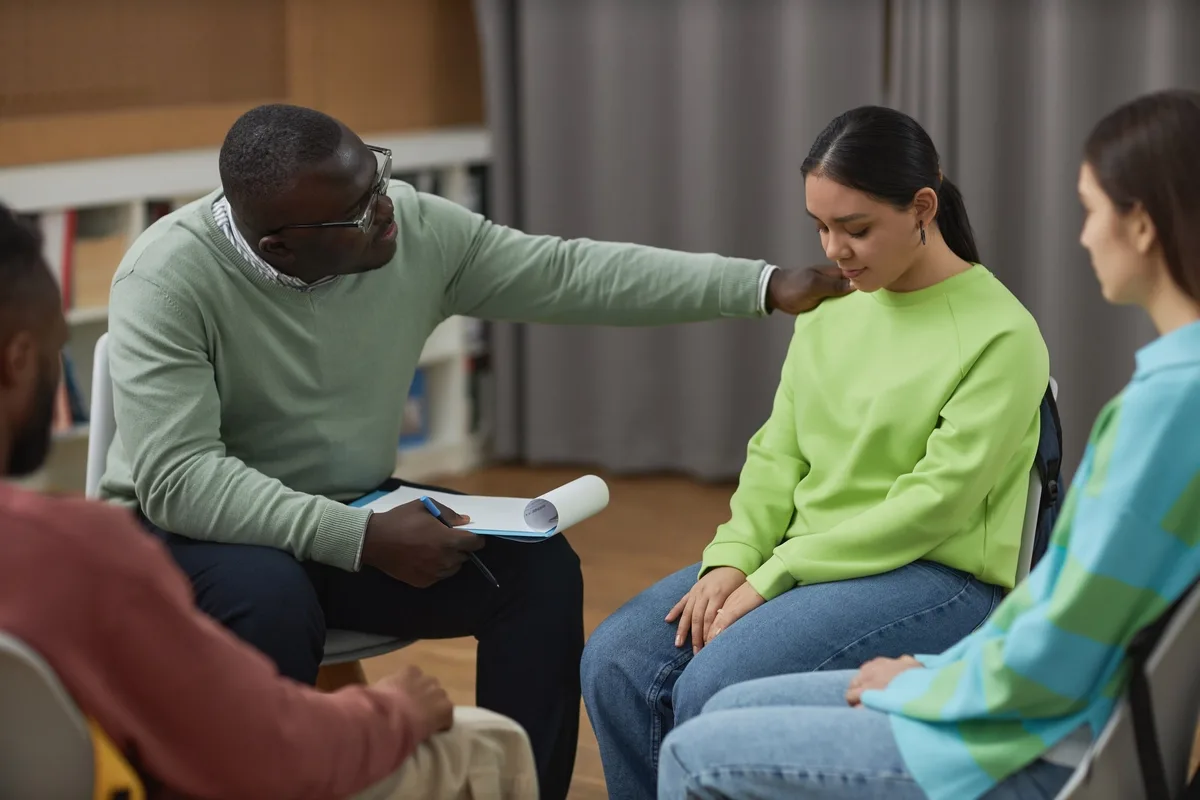24/7 Helpline:
(866) 899-221924/7 Helpline:
(866) 899-2219
Learn more about PTSD Treatment centers in Marco Island
PTSD Treatment in Other Cities

Other Insurance Options

Cigna

Optum

Aetna

Sutter

Private insurance

Regence

Molina Healthcare

Amerigroup

MVP Healthcare

BlueCross

Group Health Incorporated

Providence

Health Net

Health Choice

Carleon

Covered California

Sliding scale payment assistance

Magellan

Choice Care Network
Beacon



Youth Haven
Youth Haven is a private rehab located in Naples, Florida. Youth Haven specializes in the treatment ...

Advanced Counseling Center
Advanced Counseling Center is a private rehab located in Naples, Florida. Advanced Counseling Center...

David Lawrence Center – Crossroads Rehab
The David Lawrence Centers is an accredited mental health and substance abuse rehab in Naples, Flori...

Counseling of Southwest Florida
Counseling of Southwest Florida is a private rehab located in Naples, Florida. Counseling of Southwe...

Hazelden Betty Ford Foundation
Hazel Betty Ford Foundation provides inpatient and intensive outpatient treatment for individuals wi...

New Season – Naples Metro Treatment Center
New Season - Naples Metro Treatment Center is a private rehab located in Naples, FL. New Season - Na...

WhiteSands Treatment – Naples
WhiteSands Treatment – Naples is a private rehab located in Naples, Florida. WhiteSands Treatment – ...

High Plains Mental Health Center
High Plains Mental Health Center is a public rehab located in Goodland, Kansas. High Plains Mental H...







Collier County Counseling
Collier County Counseling is a rehab center located in Naples, FL. Collier County Counseling special...

AAR Counseling Services – Main Office North Naples
AAR Counseling Services – Main Office North Naples is a private rehab located in Naples, Florida. AA...

Twenty Four Hour Club
Twenty Four Hour Club is a non-profit rehab located in Naples, Florida. Twenty Four Hour Club specia...

Assisted Addiction Recovery
Assisted Addiction Recovery is a private rehab located in Naples, Florida. Assisted Addiction Recove...

Visions
Visions is a private rehab located in Naples, Florida. Visions specializes in the treatment of Subst...



































































































